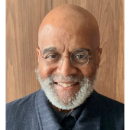
[OP-ED] The value of difference
MORE IN THIS SECTION
How can we come together despite the differences? More than ever, this question is pertinent today because of the public awareness of this condition. Globalization has brought to the surface profound ethnic, cultural, political, economic, gender and other differences across the world.
The contrast, in these times is the polarization that leads us to extremes and to denigrate those who do not think or act as we do. Without going to more complex areas where many forces converge, in our families or with our friends, where differences should unite us in a respectful discussion, we see that heated messages end up making enemies or placing prohibitions, in my view absurd, such as not talking about politics, religion or football, to give just a few examples.
These spaces should be the most favorable to listen to each other, to get to know them, to reflect on differences, to argue from knowledge, so that we learn to build new paths of encounter. From there, we could manage to be more inclusive, to value diversity as something that enriches and, finally, to come together despite the difference, for a better society. Likewise, education should serve as a lightning rod and an antidote.
To take another example, diversity and inclusion have been present in migration processes for centuries. And in the Americas they have been part of its development process for more than 500 years. We are the sum of multiple ethnic and cultural ingredients. But in many areas, such as education, this is not realized.
In Latin America and the Caribbean, we are 660 million inhabitants, of which 10 % belong to indigenous peoples, and almost 20 % are Afro-Americans. But unfortunately, both have very poor social and economic conditions, as well as little access to education, health and decent work.
RELATED CONTENT
In the United States, Latinos are becoming more and more numerous and play a greater role in the country’s development. Today they represent 18.9 %, according to the 2021 census. There has been a substantial improvement in their working and educational conditions, but there is still a lack of political will for diversity and inclusion in several states and companies.
In that country, the language wall is a strong factor for exclusion, where discriminatory expressions and actions based on origins continue to exist. However, those who have managed to make the leap and become socially and economically connected have done so through education, a fundamental condition for diversity and inclusion to materialize and for us to understand how decisive they are for our development. That is why it is so important to take ownership of their meaning: to learn from others, to confront our differences and to understand that we depend on other people to move forward.
How satisfying it is to see the diversity of a society in a classroom! That should be the measure of whether we are moving forward or backward. We have made the leap, at least in education and in many workplaces. There is still a long way to go, but progress towards equity is irreversible.
The responsibility of the education sector and institutions is to create the required strategies to have a vision based on diversity and inclusion, together with quality. If we achieve this, other areas of society will be impacted.
That is why it is important to understand that difference does not subtract. On the contrary, it adds up.
(*) PhD in Pedagogy. Dean of the Colombian School of Rehabilitation.
goe.rojas@ecr.edu.co







LEAVE A COMMENT: